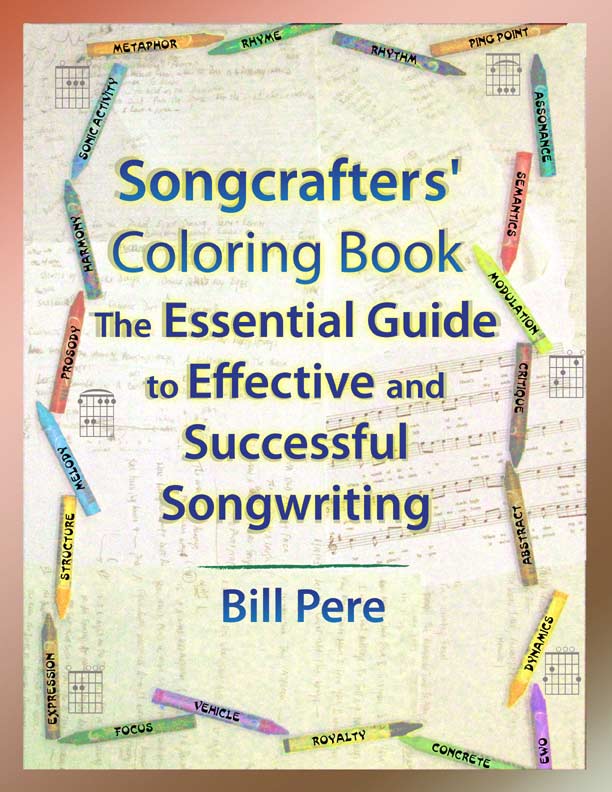







| We Teach the Art of Success |
|
PO Box 511 Mystic CT 06355 --- info @ ctsongwriting . com |
Take the
MUSIC BIZ QUIZ
15 Simple Questions that can
save you from the sharks
How much do you know about Music Business basics ?
1. When I finish writing a song, I have to send a special form to the Copyright Office in Washington D.C. to establish my rights to the song. (TRUE or FALSE )
2. I co-write song equally with a friend. A publisher is interested in the song and wants us to sign over 100% of all publishing rights. What percent of the song would I still own if we do that ? (a) 0% (b) 25% (c) 33% (d) 50%, (e) 66% (f)
3 A producer I've hired to arrange and produce my song adds several instrument and harmony lines which improve the song. Because of his creative input, which of the following am I obliged to do:
(a) add his name to the copyright of the song
(b) give him a percentage of future royalties
(c) both of the above
(d) none of the above
4. I can protect my rights to a song by sending a copy to
myself by certified mail
(TRUE or FALSE)
5. Registering a song with both ASCAP and BMI will improve my chances of getting royalties from airplay and live performance. (TRUE of FALSE)
6. A song contest specifies that it want only unpublished songs submitted. If I've recorded a song myself and placed it myself for sale only in my online store on MySpace,. I can submit it to the song contest (TRUE of FALSE)
7. I own all the rights to a song I've written. I record
it, release it on CD, put it on MySpace, and another
artist hears it and want to record it. They can only do so if I
give permission. (TRUE or FALSE)
8. I want to record a song originally recorded by a well
known artist.
I need to get permission from:
(a) The artist
(b) The songwriter
(d) The publisher
(e) All of the above
(f) None of the above
9. You just finish writing a new song. An up-and-coming Independent artist is recording a CD, hears the song, and wants to use it on her album. In order for you to let that happen, you must first :
(a) Send the copyright form under your name to the
Copyright Office
(b) Get the song under contract to a publisher
(c) Register the song with ASCAP and BMI
(d) All of the above
(e) Only two of the above
(f) None of the above
10. You place a song with a publisher under a standard SGA
contract. The song gets
recorded by a band and included on their self-released CD which sells about
11,000
copies. From those specific CD sales, you should expect to receive:
(a) about $500 from the band
(b) about $500 from the publisher
(c) about $1000 from the band
(d) about $1000 from the publisher
(e) about $5,500 from the publisher and $5,500 from the band
(f) about $11,000 from the band.
(g) a bill from the publisher for your share of recording and touring
expenses
11. A publisher will sign your song to an exclusive deal guaranteeing you that for a 50% interest in the song, he will have your song recorded and released on CD within 2 years or you get your rights back. The only cost to you is a $1500 fee for the professional recording. This is a generous publishing offer. (TRUE or FALSE)
12. If I place a song with a publisher, there is no way to avoid giving up some percentage of the royalties which the song may generate. (TRUE or FALSE)
13. At a critique session, with many people present, my
song was highly praised for having a unique concept. I sent in the copyright
form for my song and after receiving the validated form back, I
performed the song live at a showcase. Someone then took my same chord
progression, altered the melody and words, kept the same title and concept,
and recorded their own song. I have clear grounds to file a claim for
infringement.
(TRUE or FALSE)
14. My song, for which I own all rights, is played on a national TV broadcast in the U.S. From the list below of all the agencies I am involved with, the agency from which I would expect to see my royalties is:
(a) AFTRA
(e) SESAC
(i ) NSAI
(b) NARAS (f)
SGA
(j ) Harry Fox
(c) Sound Scan (g) Sound Exchange
(k ) None of the above
(d) AFM
(h) Wal-Mart
15. To get my Indie CD containing 20 songs into worldwide digital distribution through all major distribution channels, I should expect to pay:
(a) Less than $50
(b) $50 - $100
(c) $500-$1000
(d) more than $1000
(e) an annual per-song licensing fee
16. I wrote a song and own all the writer and publishing rights. I had an artist record it, and it's getting extensive Internet airplay, and generating royalties. How much of the royalties collected from radio stations by Sound Exchange should go to me?
HOW DID YOU DO ? The Answers are below. If
you got
0-7 right: --- You're in danger of making some unfortunate
decisions.
8-10 right --- You know more than most, but have several areas
of vulnerability
11-15 right --- You know a great deal -- but maybe a "great deal" will get by
you because
of the few things you didn't know.
16 right --- Great! -- Teach others
what you know.
CLICK HERE FOR THE ANSWERS
=================================================================
(c) Copyright 2008 Connecticut Songwriting
Academy
All Rights Reserved.
Please request permission to reproduce this content.
info @ ctsongwriting . com
Go To: HOME -- Bill Pere -- Kay Pere -- Critique-- Services -- Recording -- Publishing -- Songwriting -- Links